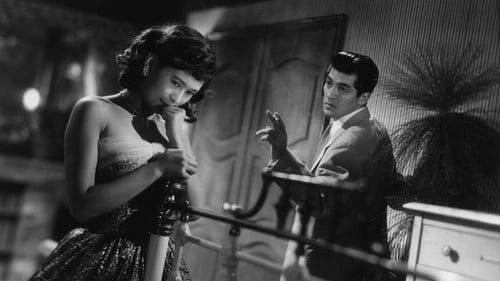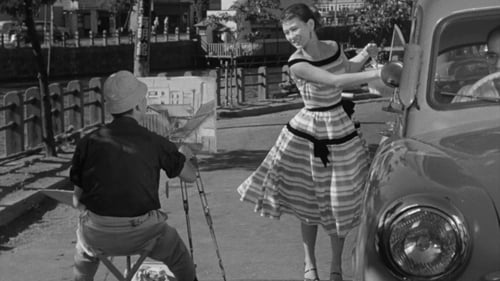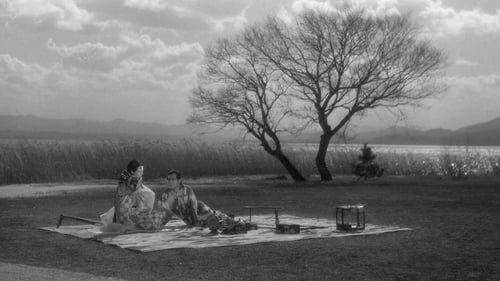
Haru Shimizu
Two friends, both members of a Japanese cargo boat, return to Japan after a three-month voyage and have just 24 hours shore leave. In those hectic hours, they vie for the affections of a hotel owner's daughter but wind up with separate girl friends and attempt to bring together the parents of a baby who have separated.

Not too long ago, Soichiro was considered one of the most powerful men in business. But his business had failed, his granddaughter had committed suicide. There was nothing in his life anymore that he could look forward to. Sochiro was ready to put an to it end to all. As he drives down the Usui Pass, headed toward his summer house in Karuizawa, a girl in red heels, wearing nothing else but a coat jumps in front of the car.

A high school boy and girl in the midst of their youth try to get their parents to remarry.

A touching story of a girl who sails away from her love to keep her family together.

A 1961 crime film.

Keisuke's aunt
Keisuke and Shizuko grew up by the Kitakami river and came to fall in love before they knew it. Eighteen years ago, Shizuko was left an orphan and was taken in by Keisuke's parents, who had raised her as their own child. At the riverside when the cherry blossoms are falling, Keisuke, now enrolled in university, promises Shizuko that he will tell his parents about them at the start of the summer vacation. He then sets off for Tokyo...

Landlady

1956 Japanese film, originally released in three parts.

Nobuko is a widow who lives with her daughter-in-law Tamiko and her brother Junjiro. The family's gatekeeper, Komatsu, is attracted to Tamiko, but she is encouraged to marry a doctor and he is afraid to tell her his feelings.

In the thriving Tokyo neighborhood of Ginza, a woman in the process of selling her estranged husband’s art collection attempts to identify the man who painted her own portrait fifteen years prior.

In 16th century Japan, peasants Genjuro and Tobei sell their earthenware pots to a group of soldiers in a nearby village, in defiance of a local sage's warning against seeking to profit from warfare. Genjuro's pursuit of both riches and the mysterious Lady Wakasa, as well as Tobei's desire to become a samurai, run the risk of destroying both themselves and their wives, Miyagi and Ohama.

Kazuo Miyagawa’s prizewinning black-and-white cinematography draws out the moral shadings of Nobel laureate Yasunari Kawabata’s 1952 novel Thousand Cranes, a quietly devastating story of a young man, orphaned during the war, who stumbles into a passionate yet tragic relationship with his late father’s mistress and her daughter.

An intellectual couple in a staid and tedious marriage are surprised when the wife’s niece, who has run away from home, turns up unexpectedly to stay with them. Their mundane lives are sent into disarray by the emotional and energetic Ako.

Shinnosuke is introduced to Shizu as a prospective marriage partner, but he falls in love with her widowed sister Oyu. Convention forbids Oyu to marry because she has to raise her son as the head of her husband's family. Oyu convinces Shinnosuke and Shizu to marry so that she can remain close to Shinnosuke.








